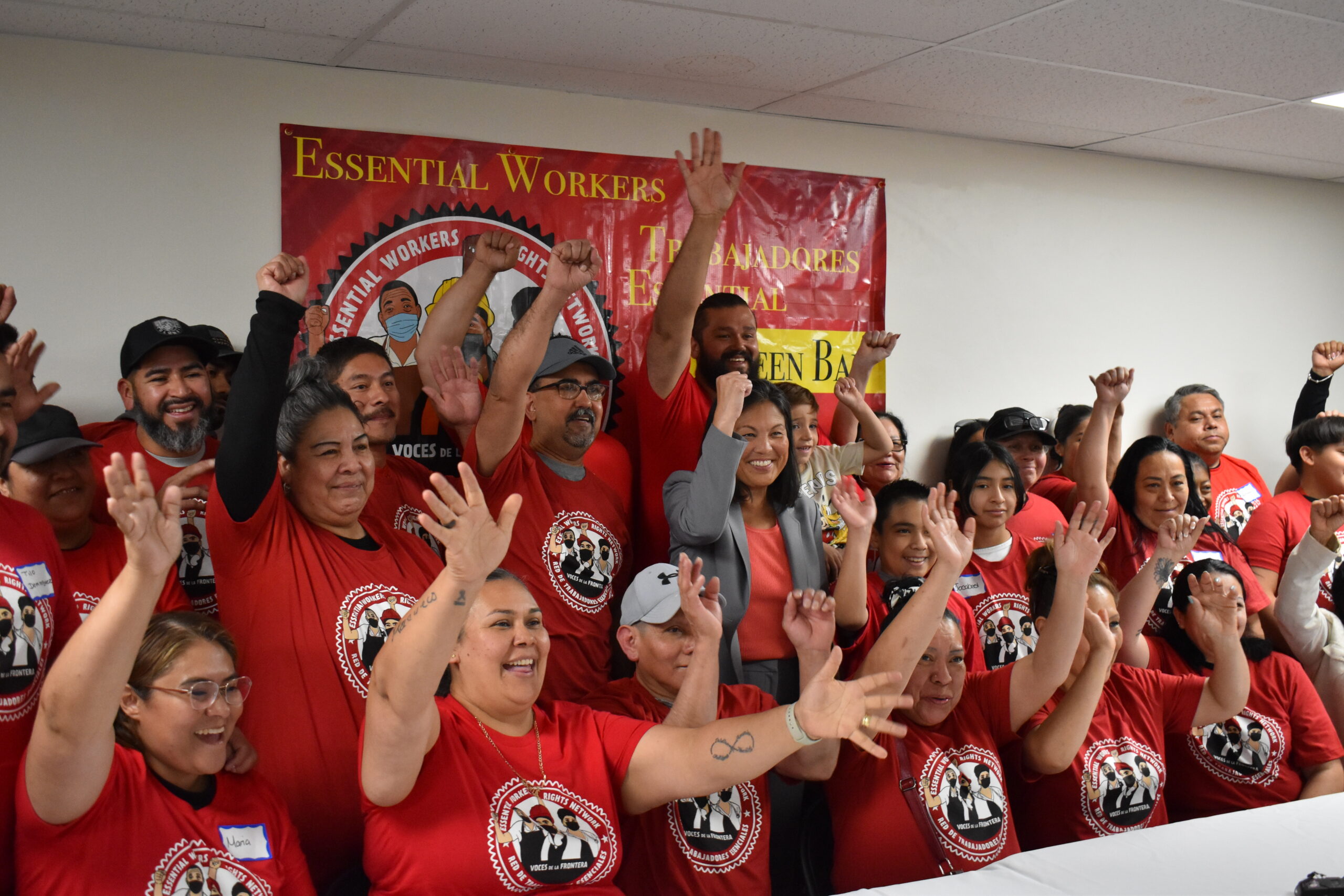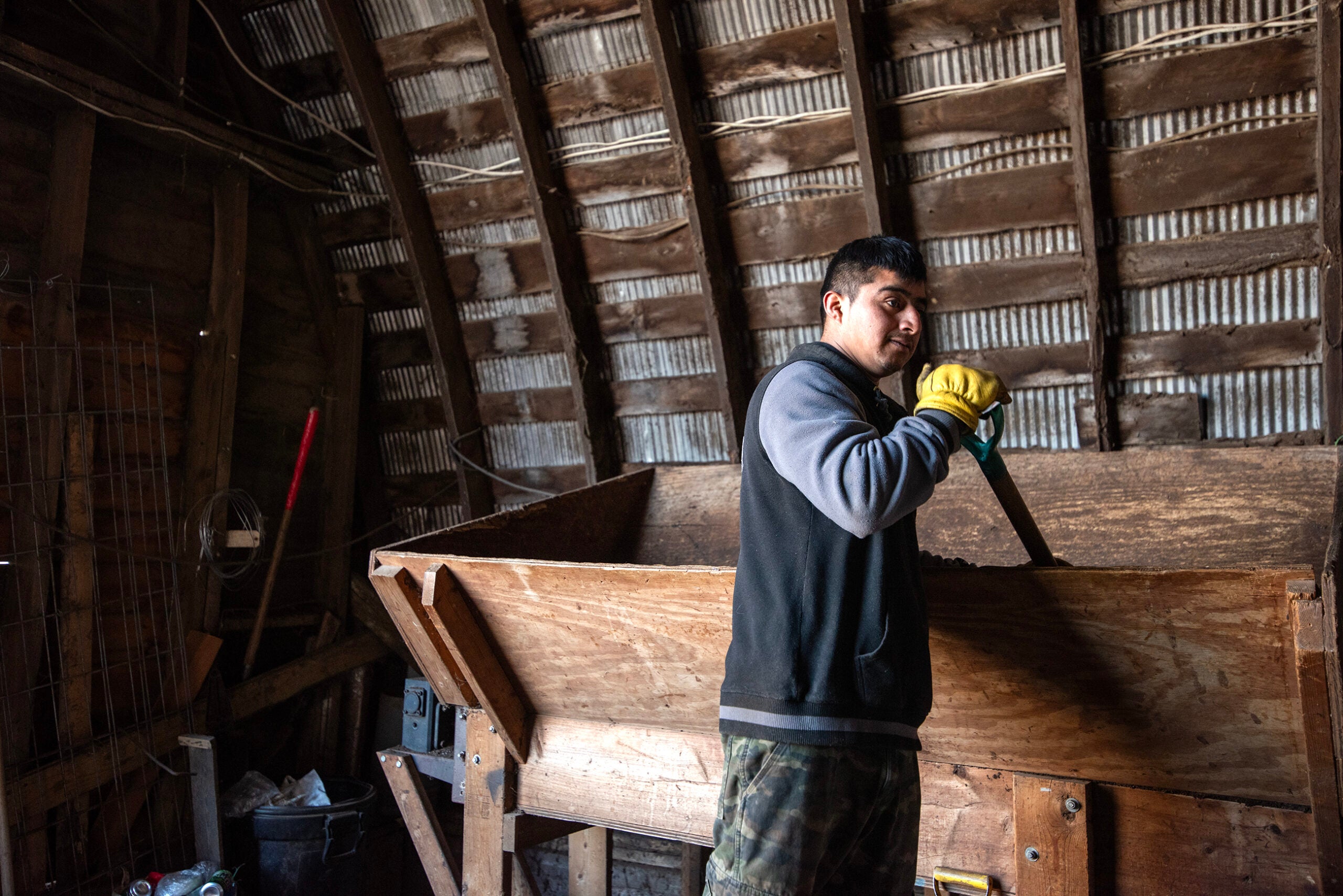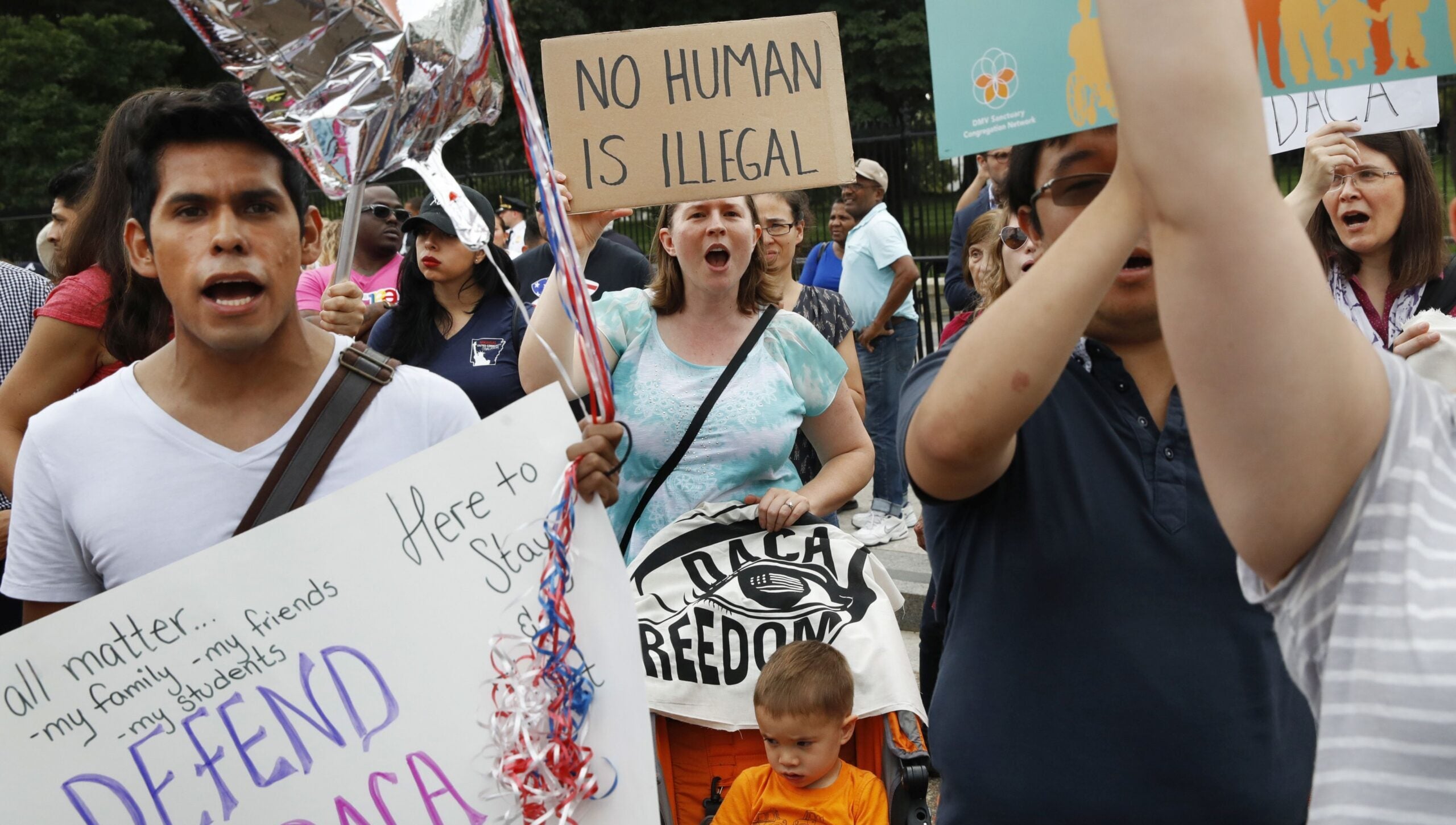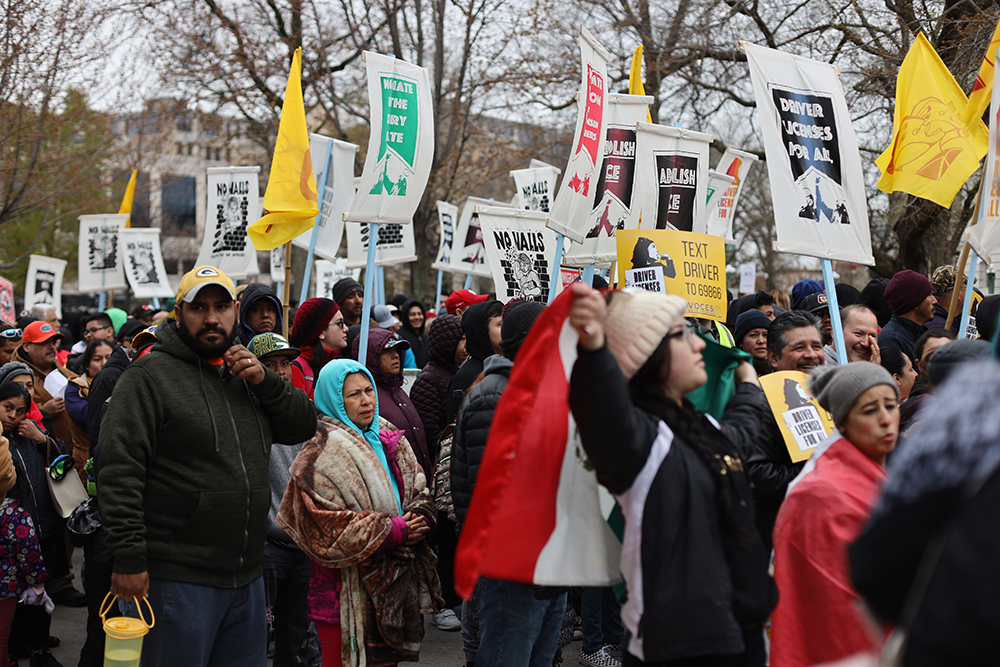Immigrant workers involved in labor disputes could be temporarily protected from deportation under a Biden-Harris Administration policy.
On Monday, the U.S. Labor Secretary met with an immigrants rights group and workers in Green Bay, where she heard from people participating in the Deferred Action for Labor Enforcement program.
The aim of the program is to protect people who report violations of labor law — for example if a company is forcing people to clock out when they are actually working, or companies that may be violating child labor rules.
Stay informed on the latest news
Sign up for WPR’s email newsletter.
If an immigrant files a labor or workplace safety complaint with a federal labor agency or is part of a labor investigation, the agency may provide a “statement of interest” letter. An immigrant can then provide that letter to immigration officials, who may grant them a protected status for up to four years.
Labor agencies may issue a new statement of interest if there is an “agency need” beyond the four-year period, according to the Department of Homeland Security.
The program allows some immigrants to access a work permit, a social security number and a driver’s license.
U.S. Department of Labor Acting Secretary Julie Su, a Madison native, said Monday that deferred action is one of many tools the department is using to make sure all workers are protected by U.S. labor and workplace safety laws.
“I think there are a lot more workers who could be eligible for deferred action than are actually applying for it,” she said.
Christine Neumann-Ortiz, the founding executive director of state immigrants rights group Voces de la Frontera, said deferred action is something that immigrant rights groups spent “many years” advocating for.
She also said it’s been “transformative” for immigrant workers in Wisconsin because the greatest challenge that they face is their insecure immigration status.
“It’s built so much confidence and it’s such an effective program,” she said. “We’re very excited for this program to grow.”
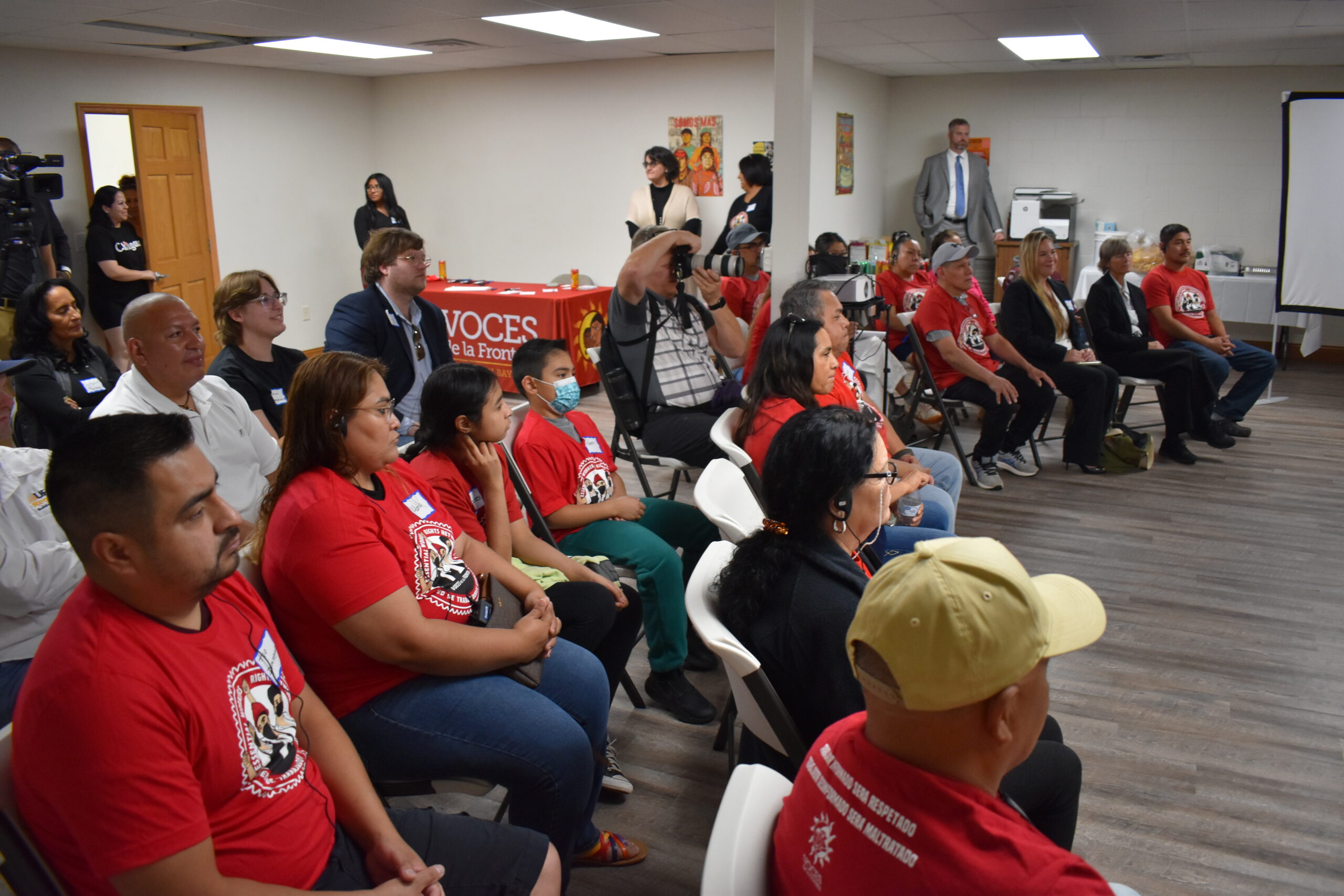
Jake Bailey, president of United Food and Commercial Workers Local 1473, said his union represents about 12,000 members in Wisconsin and Michigan’s Upper Peninsula who work in the retail, meatpacking, food processing, healthcare and cannabis industries. He said roughly half of his members in meatpacking are immigrants.
Bailey said deferred action has been “life changing” for many of the union’s members. During an organizing campaign at a bakery, he said workers were able to get statement of interest letters from the Occupational Safety and Health Administration and the National Labor Relations Board.
“That is going to protect about 115 individuals in that facility that don’t have the correct status,” he said.
According to the nonpartisan Migration Policy Institute, about 70,000 people without legal immigration status live in Wisconsin. About 47,000 of those people are employed, with about 23 percent working in manufacturing, 10 percent in construction and 10 percent in agriculture.
While deferred action has been embraced by state labor leaders and immigrants rights groups, Su’s visit came as Republican former President Donald Trump has said on the campaign trail he would lead the largest deportation effort in U.S. history if reelected. In recent budget proposals, Democratic Gov. Tony Evers has called for extending driver’s license eligibility to immigrants without legal status, but those efforts have been blocked by the Republican-controlled state Legislature.
Green Bay resident Miguel García has lived in the U.S. for about 15 years, and has been participating in the deferred action program for about a year. He said it’s given him a better sense of security at work.
“At work, it’s way better because a lot of people that don’t have legal status, they are victims,” he said. “And the companies know that, so they treat them differently because they believe that they can do pretty much whatever, and people is not going to leave because they don’t have an option.”
Israel Peña is a carpenter who lives in Green Bay and has been in the U.S. for about 14 years. He was one of the workers who met with Su during the roundtable. Peña said the meeting made him feel seen.
“I feel so happy because I see somebody is with us, somebody is taking care about us,” he said. “Because sometimes we don’t do anything because we feel like we don’t have rights or nobody cares.”
García and Peña both also said they want to see permanent protections for immigrants who have been living and working in the country for years.
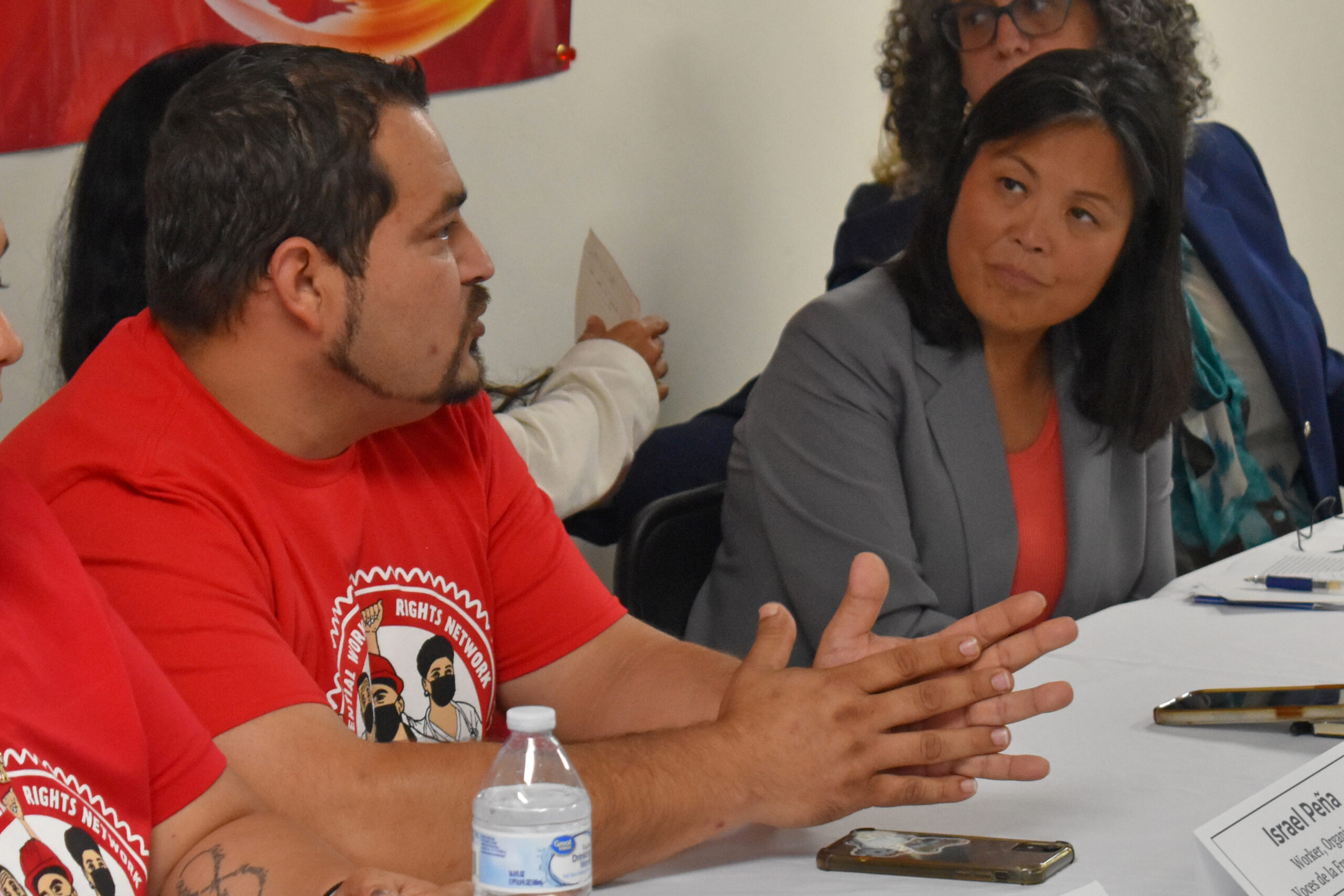
García said he emphasized the need for permanent protections in his conversation with Su.
“We want her to understand that we got good people,” he said. “We are hard workers, we are good people and we want to be here with you guys. We want to be part of this society.”
Wisconsin Public Radio, © Copyright 2025, Board of Regents of the University of Wisconsin System and Wisconsin Educational Communications Board.
